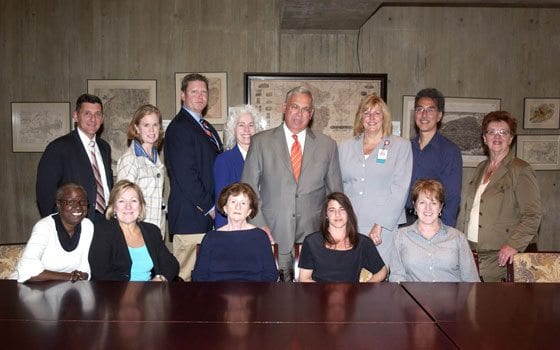
In what Mayor Thomas M. Menino called an “absolutely critical” step in funding local substance abuse programs, Gov. Deval Patrick last week awarded the Boston Public Health Commission (BPHC) nearly $2 million to help fund neighborhood groups working to combat drug and alcohol addictions.
The funds, to be disbursed over the next three years, “could not have come at a better time, as new data show the extent of the challenges we face in Boston in combating substance abuse,” said BPHC Executive Director Barbara Ferrer. “It’s a problem that must be tackled from the ground up, and these funds will allow us to continue the community mobilization work that we know can make a difference.”
About $320,000 in first-year grants will fund “NoDrug coalitions” focused on preventing and reducing alcohol and drug abuse in Allston-Brighton, Chinatown, Dorchester and South Boston. The money — totaling $960,000 over three years — will allow groups in those neighborhoods to expand their efforts, with particular emphasis on underage drinking.
“The state funding is absolutely critical to our work to stem substance abuse in the city of Boston,” Menino said in a statement. “It will enable us to enhance the support we provide to community-based organizations who work with individuals, families and neighbors struggling with addiction.”
A second set of first-year grants totaling $340,000 are earmarked for NoDrug coalitions that will focus on preventing and reducing drug overdoses in the South End, Charlestown, South Boston, Jamaica Plain and Roxbury. These groups will get about $1 million over three years.
Substance abuse deaths in Boston rose to 176 people in 2006 from 133 in 2005, according to the BPHC’s recently released “Health of Boston” report. In 2007, nearly 87 percent of those seeking admission to public treatment centers were between the ages of 19 and 49.
“We recognize that drug and alcohol abuse remains a rampant problem and one not confined to our city limits,” said the BPHC’s Ferrer in a statement at the time of the annual report’s release. “But we are working as hard and as creatively as we can to offer programs aimed at preventing the abuse of alcohol and illicit drugs, and ensuring access to needed treatment for people struggling with addiction.”
In 2004, in response to the demand for substance abuse services and the rampant use of oxycontin and heroin among the city’s youth, Menino and the BPHC created and funded 16 NoDrug neighborhood groups throughout Boston.
Beth Rosenshein, coordinator of the Charlestown Substance Abuse Coalition, said she was grateful for the state funding.
“It’s because of this type of funding that opiate overdose calls from Charlestown to Boston Emergency Medical Service declined 17 percent between 2003 and 2006, and drug-related mortality rates decreased 41 percent between 2003 and 2005,” said Rosenshein.
For more information, contact the BPHC’s Substance Abuse Services at 617-534-5554.






